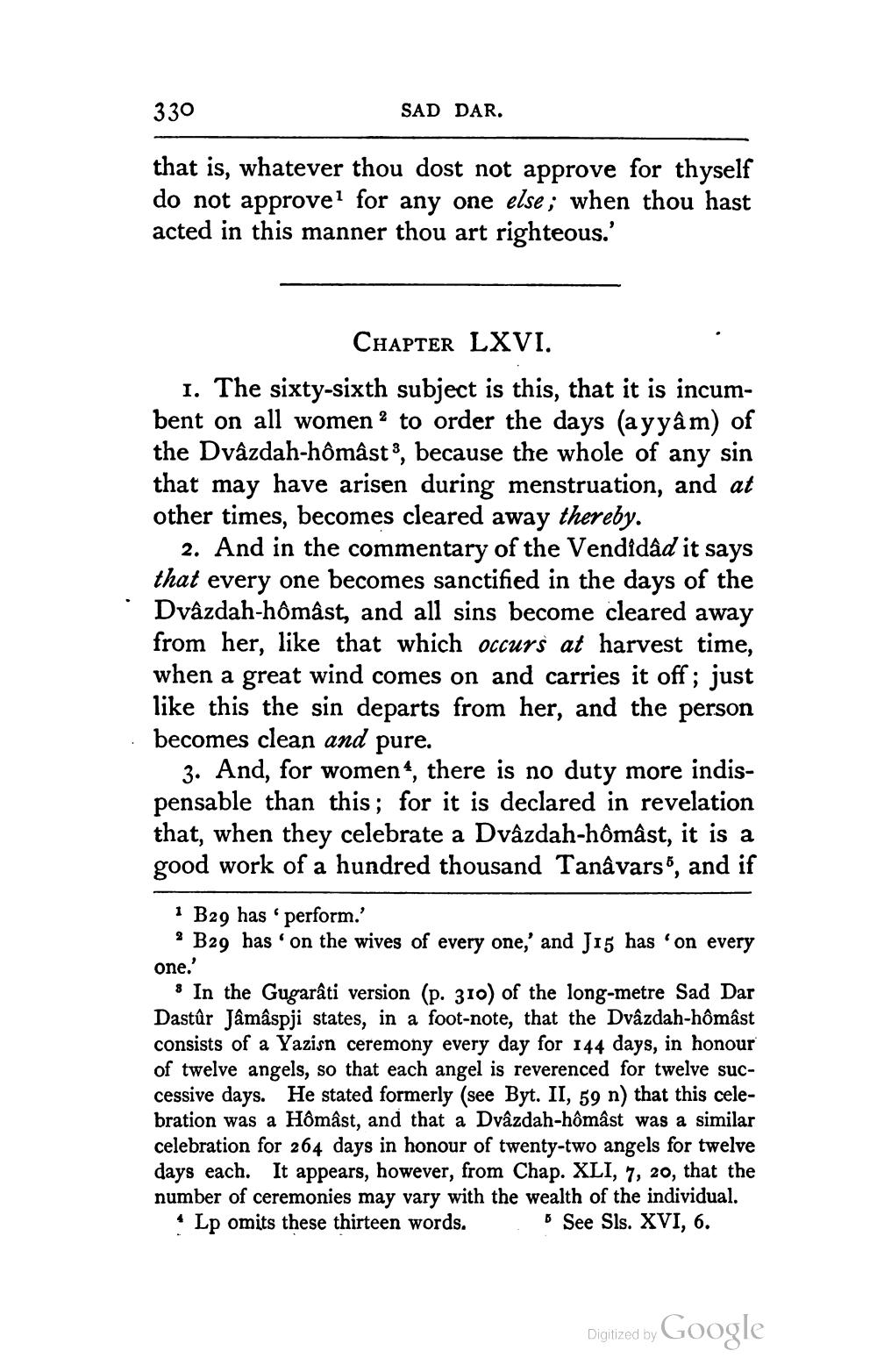________________
330
SAD DAR.
that is, whatever thou dost not approve for thyself do not approvel for any one else; when thou hast acted in this manner thou art righteous.'
CHAPTER LXVI. 1. The sixty-sixth subject is this, that it is incumbent on all women ? to order the days (ayyâm) of the Dvâzdah-hômâsts, because the whole of any sin that may have arisen during menstruation, and at other times, becomes cleared away thereby.
2. And in the commentary of the Vendidâd it says that every one becomes sanctified in the days of the Dvâzdah-hômâst, and all sins become cleared away from her, like that which occurs at harvest time, when a great wind comes on and carries it off; just like this the sin departs from her, and the person becomes clean and pure.
3. And, for women 4, there is no duty more indispensable than this; for it is declared in revelation that, when they celebrate a Dvâzdah-hômâst, it is a good work of a hundred thousand Tanâvars, and if
1 B29 has perform. * B29 has on the wives of every one,' and J15 has on every
one.'
In the Gugarâti version (p. 310) of the long-metre Sad Dar Dastûr Jâmâspji states, in a foot-note, that the Dvâzdah-hômást consists of a Yazisn ceremony every day for 144 days, in honour of twelve angels, so that each angel is reverenced for twelve successive days. He stated formerly (see Byt. II, 59 n) that this celebration was a Hômâst, and that a Dvâzdah-hômâst was a similar celebration for 264 days in honour of twenty-two angels for twelve days each. It appears, however, from Chap. XLI, 7, 20, that the number of ceremonies may vary with the wealth of the individual.
Lp omits these thirteen words. See Sls. XVI, 6.
Digitized by Google




